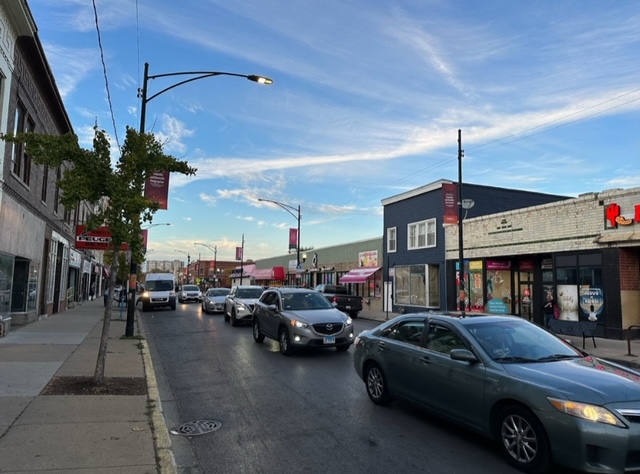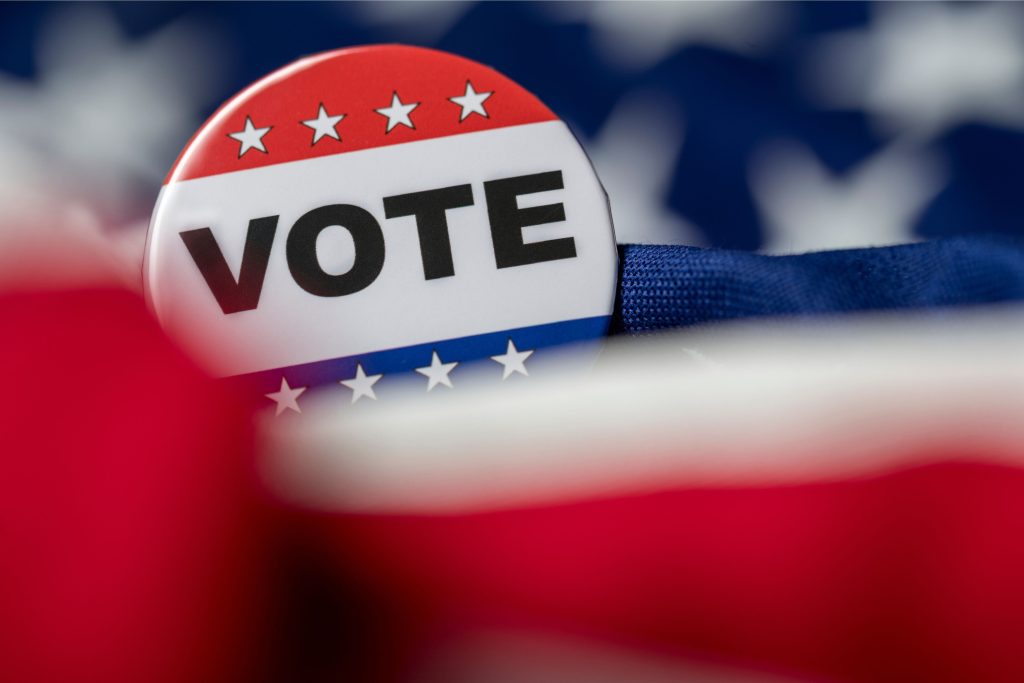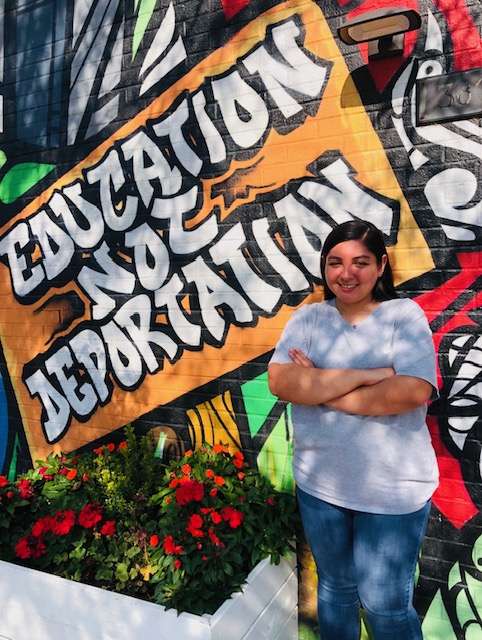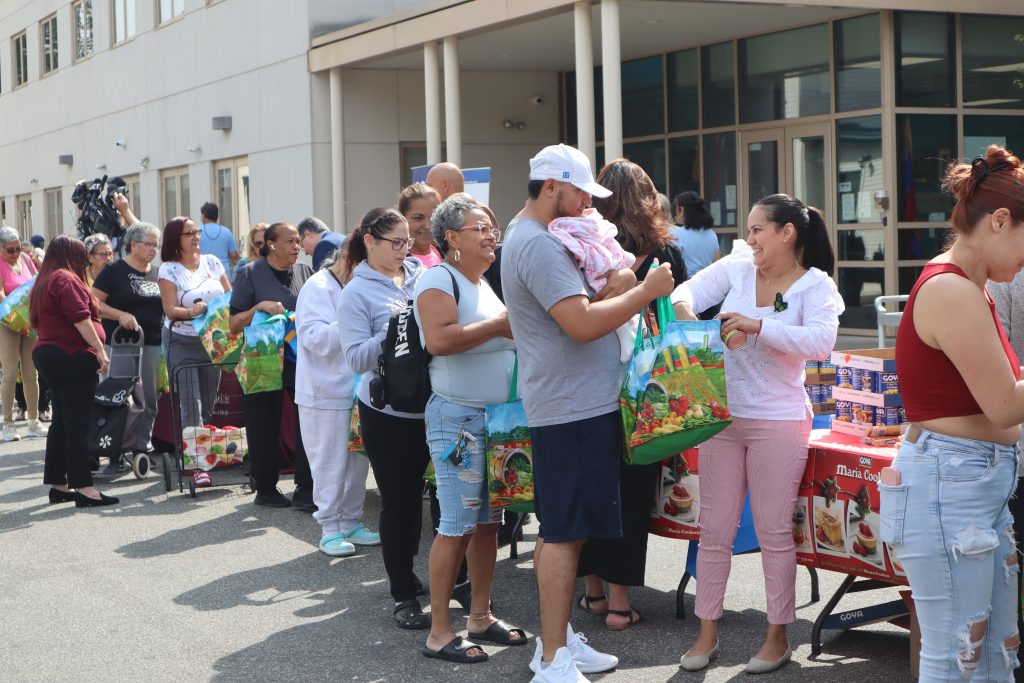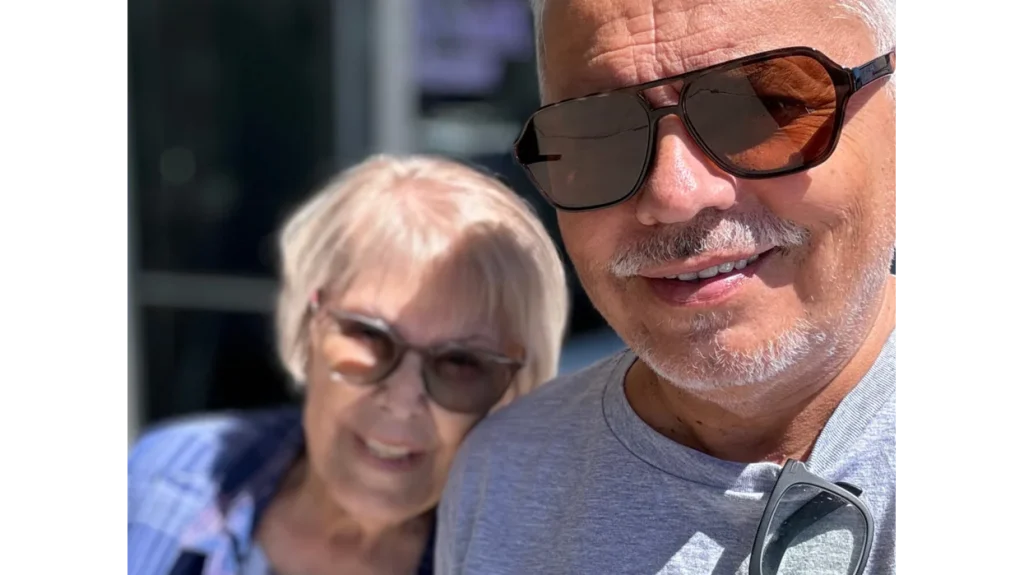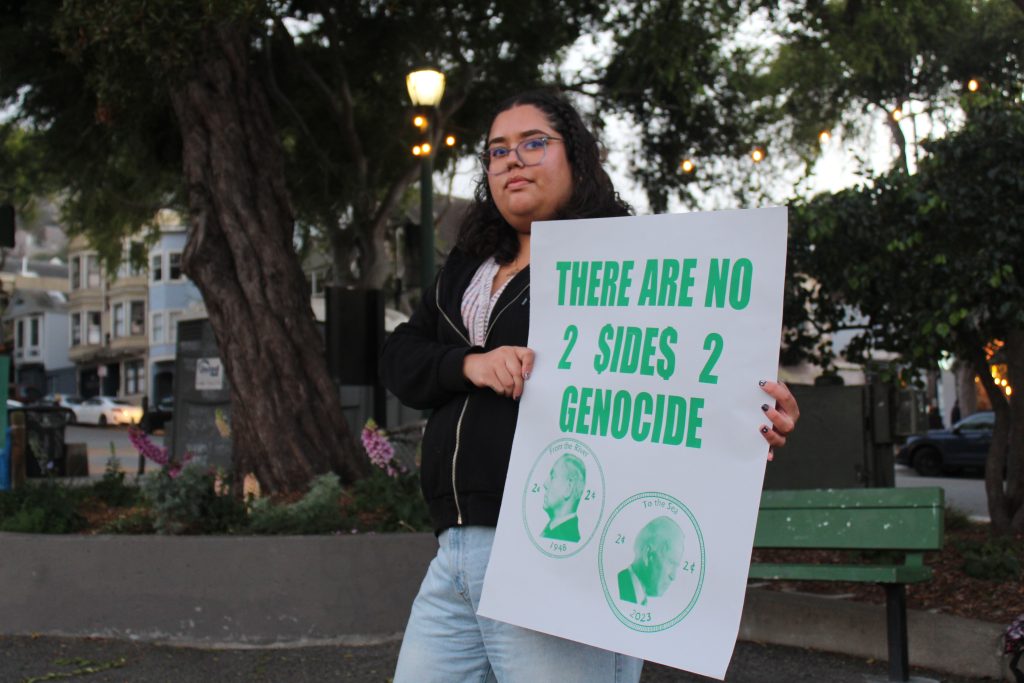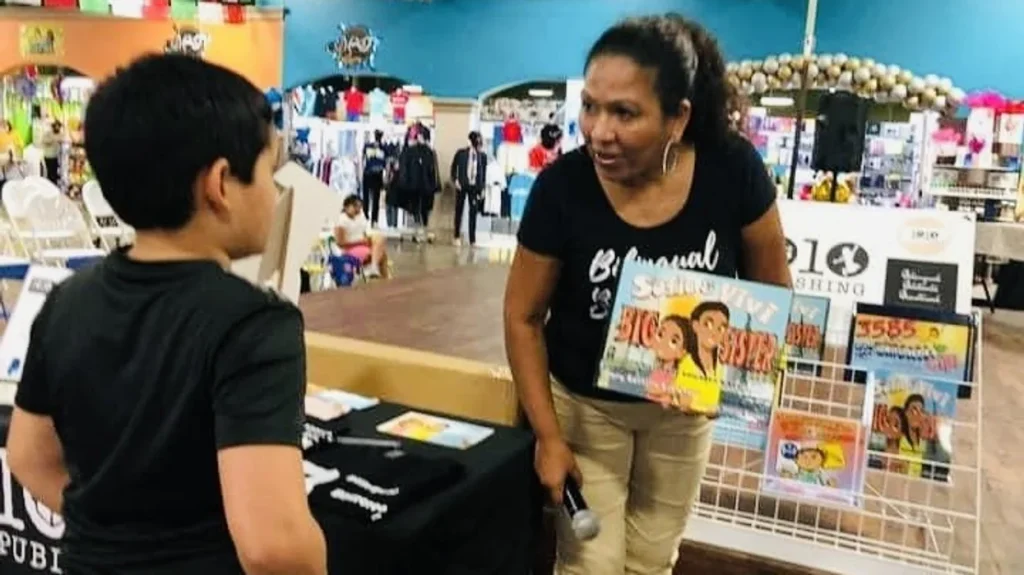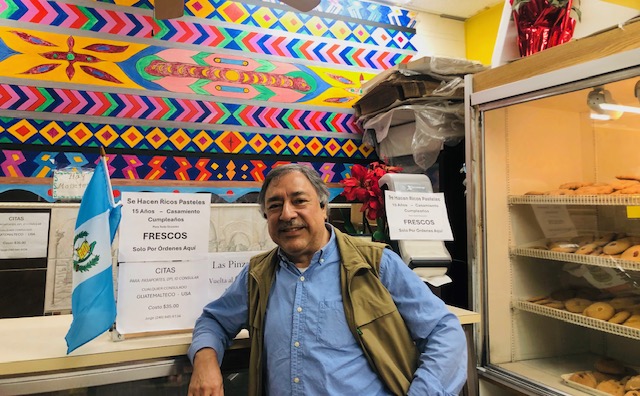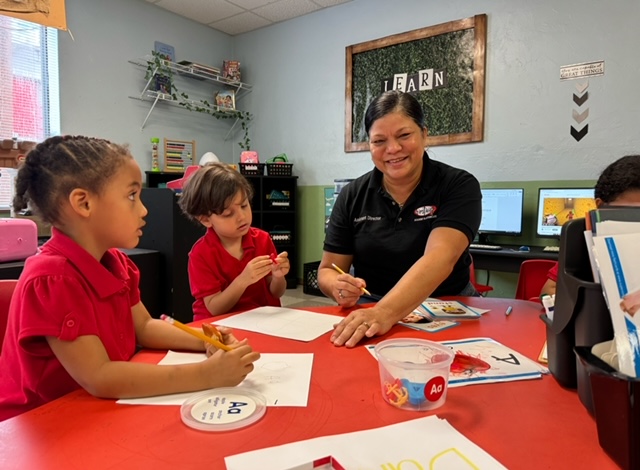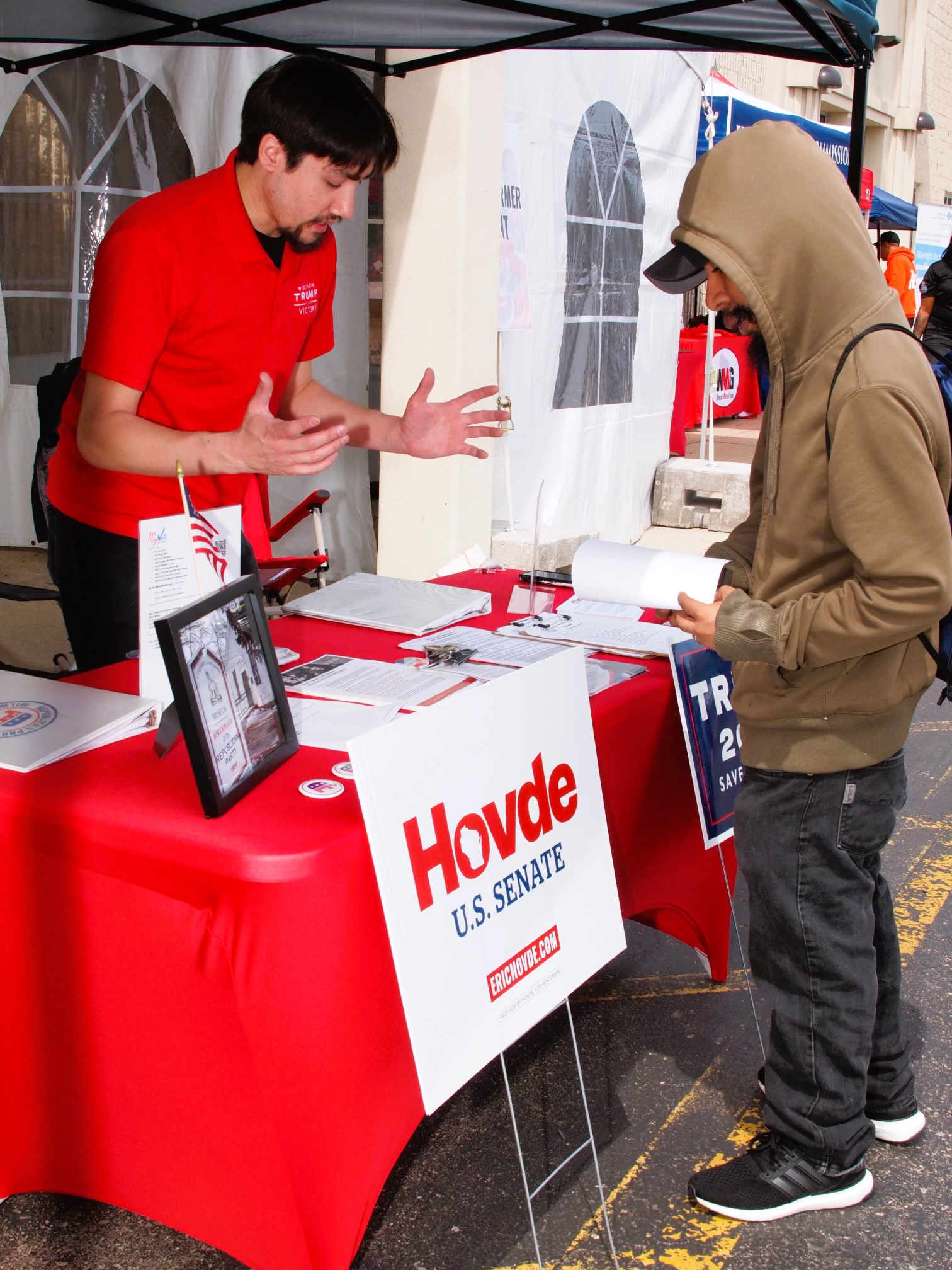For the first time since turning 18, Jaret Garcia will vote for a different party in November’s presidential election.
“Once you are working and financially supporting yourself, you look at things differently, too,” Garcia said. “I think a lot of people my age are on the same boat of just trying to make the best decision for the future and changing parties not based solely on their beliefs but more on what is best for the country and the future.”
The 27-year-old moved to Delavan, Wis., from the Chicagoland area as a child as her parents pursued their dream of opening a business. Garcia’s parents, originally from Mexico, own multiple storefronts in Wisconsin and have helped transform downtown Delavan.
“More opportunity. This is a smaller town,” she said. “We were the second [Hispanic] business [in downtown Delavan], and slowly it started growing.”
Garcia, a real estate agent, said being self-employed impacted her vote in the election. She believes one party contributed more to small businesses, especially following the COVID-19 pandemic. Her fiance is also self-employed and owns a cleaning company.
Garcia said her and her fiance’s business took a hit once concerns over the economy’s state increased. Garcia, who has a primarily Hispanic clientele, said she saw people’s ability to purchase a home being impacted.
According to UnidosUS’s Hispanic Electorate Voter Hub, the economy, the rising cost of living, wages, and inflation are among the top five concerns for Hispanic voters nationwide, along with healthcare costs and housing affordability.
A poll of Latino voters across battleground states conducted by the Hispanic Federation and the Latino Victory Foundation found that out of the 200 surveyed eligible Latino voters in Wisconsin, 64 said the “cost of living and inflation” was the most important issue facing the United States, with 28 citing “jobs and the economy.”
The poll, conducted from Oct. 2 through Oct. 10, reported that 29 people said “housing costs and affordability” are front of mind, another issue Garcia said personally affects many in her community.
Hilario Deleon, 23, said the economy is one of the most important domestic issues.
Deleon, the chairman of the Republican Party of Milwaukee County, will be voting for former President Donald J. Trump.
“Right now, everything is so expensive,” Deleon said. “Gas is still high, grocery prices continue to rise. Inflation has not gone down…rent is extremely high. People have to work more than two jobs to put food on the table.”
While canvassing, Deleon said he’s spoken with many Latinos who cite the economy as their top concern.
“They are aligning with these issues and that is why we are seeing a major increase of support for President Trump,” Deleon said. “These people feel like they are being left behind.”
Deleon said he believes inflation and prices will continue to rise if Vice President Kamala Harris wins.
In a Sept. 16 through Sept. 23 nationwide poll of 1,000 registered Latino voters conducted by NBC, CNBC, and Telemundo as part of Telemundo’s “Decision 2024” initiative, Latino voters favor Harris with a 14-point lead over Trump, a smaller lead from previous election years.
According to the poll, Democrats had a 38-point lead in 2016, followed by a 33-point lead in 2020. The poll shows Trump leading on issues such as the economy by 4 points, inflation by 9 points, and border and immigration concerns by 13 points.
The poll also showed that Trump led among male voters under 50 by 9 points and men without four-year degrees by 13 points. He also led among Catholic Hispanics by 20 points, while Harris had the Hispanic Protestant vote by 26 points.
The poll also revealed an increase in Latinos identifying with the Republican party, which has jumped from 21% in 2012 to 37% for this upcoming election.
However, according to an article published by the Wisconsin Examiner, a poll conducted from Sept. 25 to Oct. 2 by Voto Latino, a civic engagement group, found that in battleground states, Harris continues to gain support, with 64% of the Latino vote compared to Trump’s 31%.
In Wisconsin, as reported by the Hispanic Federation’s poll, out of the 200 Latino voters surveyed, 54 planned to vote for Harris and 31 for Trump, with the remaining being undecided or casting a vote for a Green party or independent candidate.
The same poll found that only 69 people reported that they were “almost certain” they would vote: 16 people said they “probably will vote,” and 12 reported the “chances are 50-50.”
Samantha Jimenez, director of engagement with the Latino Chamber of Commerce in Milwaukee, said many Hispanic business owners decide not to get involved in politics.
“The most I have gotten was ‘I don’t’ really care anymore,’ others have been saying it doesn’t matter either way,” Jimenez said.
Jimenez said the Chamber has asked owners if the election has impacted their business to point them to proper resources.
“It’s not about supporting either party with this, but how is this going to help you out as a business owner,” Jimenez said. “We are nonpartisan. We don’t support either party. It’s more we are looking out for the wellbeing of those businesses.”
Deleon, the first in his family to be involved in politics, believes Republican support from the Latino community in Wisconsin will continue to grow following their outreach within the community. “Hispanics are going to help be the different makers in this election, and we are going to continue to see that moving forward,” he said.
SUGGESTION: The impact of the Latino vote\
